However, research suggests that juggling several things all at the same time can actually make employees less productive and less likely to do good work.
- Employees who multitask take 50% longer to complete an assignment compared to employees who focus on one task at a time
- Multitasking leads to a 40% drop in productivity
- It takes an average of 25 minutes to resume a cognitively demanding task after being interrupted
No matter which industry you’re in, eliminating multitasking completely is likely to be challenging and near-impossible, but there are things you can do to encourage greater focus within your workplace and reduce the strain placed on each employee.
One secret that’s been gaining notoriety in the last couple of years is the concept of ‘deep work’. Coined by Cal Newport, a computer scientist and author in the US, deep work is a set of “professional activities performed in a state of distraction-free concentration that push your cognitive capabilities to their limit.”
But what does this actually mean when it’s at home? Basically, deep work involves tuning out all the unnecessary and non-urgent distractions and diving right into the important and meaningful work. By focusing intensely on one task for a sustained period of time, you’re more likely to achieve your goals and make progress.
Identify the tasks that’ll make meaningful progress
It’s easy to become consumed with busy work rather than deep work. It can feel satisfying to tick numerous items off your to-do list, particularly when the larger tasks appear more challenging and daunting. But if your employees spend more time answering emails than they spend developing your product, providing your service or pitching to clients, you’re not going to make the progress you need to.
Rather than filling your work day with lots of little tasks and errands that don’t lead to real progress and measurable growth, focus on projects that are challenging yet more rewarding.
Call off unnecessary meetings
Whether you hold daily or weekly meetings, work out how essential these catch-ups are. There may be times when workers have very little to report back and if a member of your team is concentrating on a particular task, the interruption sparked by having to attend a meeting could make it difficult to get back to their work afterwards.
Embrace flexible working policies
If you asked ten people what time of day they feel most productive, energised and focused, chances are you’ll get a variety of answers. And when you team this diversity with research suggesting it’s incredibly difficult for the average person to maintain concentration for a full eight hour work day, flexible working policies can seem like a no-brainer.
By allowing your team to work during hours that suits them and embracing tools that make remote working easier, you can boost productivity and watch your business grow.


